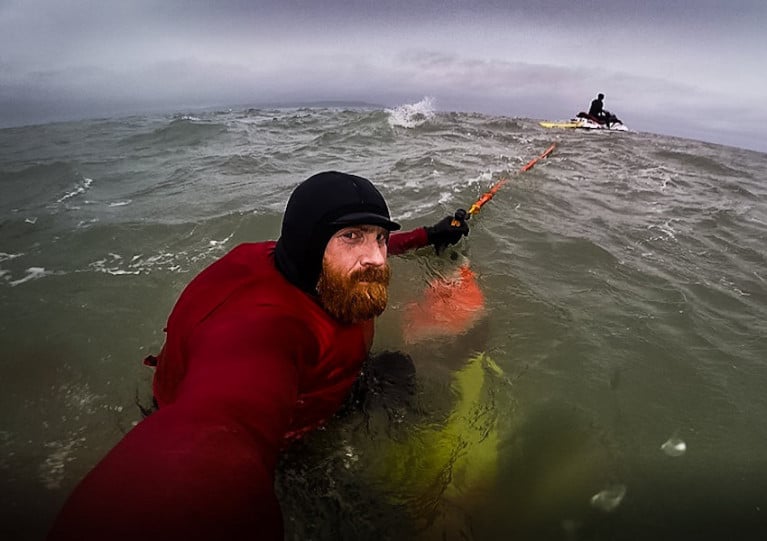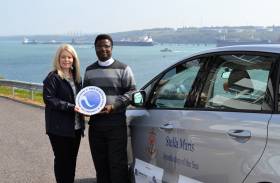Displaying items by tag: wellbeing
Lovers Of Watersports From NI Share Their Tips For Better Mental Health
Northern Ireland surfer Al Mennie says conquering some of the world’s biggest waves has helped in managing his mental health.
In the run-up to World Mental Health Day yesterday, Saturday 10 October, Mennie told UTV News how his preparation for taking on the giant swells at Nazaré and other big wave spots as given him “a really good understanding of anxiety and fear”.
And he’s also benefitted from putting his thoughts and concerns into writing, even publishing a book about his experiences.
“So, for men who don’t want to talk, I think this is a good piece of advice — if you can write stuff down and get it out of your system, it’s a great way of dealing with whatever you’re going through.
“And that might actually open the door to you then going and speaking to somebody.”
Getting into the great outdoors has also been beneficial to Lydia Millar, a final-year law student at Queen’s University Belfast who joined her university’s sailing club in her second year to help in improving her wellbeing.
“Escaping the city and being thrown into a boat with likeminded people did, and continues to do, so much for my mental health,” she tells RYANI, adding that it not only gave her a new sense of community but also directed her focus “from inward to outward”.
This year’s World Mental Health Day also saw the launch of a live training package for seafarers whose wellbeing may be affected by the challenges of the coronavirus pandemic, as previously reported on Afloat.ie.
#ports&shipping - The south Wales Port of Milford Haven is continuing its support for the Apostleship of the Sea this year with financial backing to help the organisation provide support for seafarers visiting Pembrokeshire.
The Apostleship of the Sea provides practical and pastoral care to all seafarers, regardless of nationality, belief or race. The Port Chaplains and Volunteer Ship Visitors welcome seafarers and offer welfare services and advice, as well as practical help, care and friendship. It is part of an international network known to the maritime world as Stella Maris, and works in more than 300 ports around the world.
In 2018, the Port Chaplains and Volunteers at the Apostleship of the Sea carried out 697 ship visits within the Port of Milford Haven, reaching around 15,000 seafarers. They also provided transport for crews of 359 vessels from their jetty to town and the main port offices.
Father Paul Osunyikanmi, Apostleship of the Sea Chaplain for the Port of Milford Haven and Pembroke Port, commented: “The Port of Milford Haven’s support over the years has helped us deliver a reliable service to visiting seafarers. Seafarers can sometimes be over looked and undervalued so their welfare, especially whilst away from home for so long, is very important. We are grateful that the Port recognises this importance, and is supportive of our efforts.”
Anna Malloy, Stakeholder Engagement and Communications Manager at the Port of Milford Haven, added: “Wellbeing is an important element of safety, and safety is at the heart of everything we do at the Port. That is why we value the work of the Apostleship of the Sea and other organisations seeking to enhance seafarers’ welfare. As the UK’s largest energy port, we welcome seafarers from all over the globe who travel on some of the world’s largest ships to bring in vital energy supplies. Many of these men and women have limited access to communication and transport once off the ship. The Apostleship of the Sea offers a comprehensive service that deploys Port Chaplains and Ship Visitors to focus on the needs that are greatest for seafarers visiting the Port.”
Whale Gets Third 'Best Company to Work For' Accolade
#BUSINESS - Water systems firm Whale has featured in The Sunday Times' Best Small Companies to Work For list for the third year running.
The 2012 edition of the list sees the Bangor-based company - and the only Northern Irish representative - rise 19 places to number 77.
Whale was particularly commended for looking after the wellbeing of its staff, its overall ranking of eighth place reflecting the faith in managing director Patrick Hurst and the employees trust in the “sound capabilities” of the leadership.
Patrick Hurst commented: “To be listed again in 2012 is just fantastic for all the team at Whale. Our employees and their attitude and loyalty is what defines the business and is core to its continued commercial success.
"The Whale team in the are a credit to the company and themselves. They have all worked hard together to continually maintain the quality and introduce innovative, market leading products."
Whale (Munster Simms Engineering Limited) is a key player in the leisure marine, recreational vehicle, shower drainage and industrial markets. The company specialises in the design and manufacture of water, waste and heating products including manual and electric freshwater, bilge and waste pumps, Quick Connect plumbing systems, faucets, showers, space and water heaters, and accessories.































































